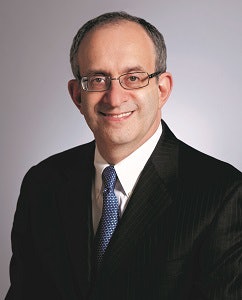Last month’s tragic murder of worshipers at a synagogue in Pittsburgh was a stark reminder of the need for tolerance in this country. While everyone is entitled to his own views, no one is allowed to act upon them when they harm others. This tolerance should be modeled and developed on college campuses, as young people are shaping their views and learning to interact with others from diverse backgrounds in ways that will inform their future. In some cases, however, universities are limiting freedom and tolerance for one group in their efforts to empower others. This message is counterproductive.
Recent incidents at the University of Michigan underscore the need for college administrators across the country to come together and agree on a definition of what constitutes academic freedom. The actions of two professors who refused to provide recommendations for students planning to study abroad in Israel because of their pledged BDS boycott dramatically highlighted this issue.
The University responded by sanctioning the professors and penalizing their actions, but not limiting their ability to speak out. I believe this was the correct response, and a lead that other colleges should follow. And yet, a larger discussion is clearly warranted.
 Dr. Alan Kadish
Dr. Alan KadishDoes academic freedom offer professors the right to express any and all viewpoints and act accordingly? Academic freedom begins with the right of a professor to express his views and personal beliefs but ends when it punishes students for having their own personal beliefs. Academic freedom must involve intellectual honesty; it should enlighten students and expose them to other reasonable viewpoints with which they can choose to agree or disagree. Academic freedom, as opposed to the First Amendment right of freedom of speech, ought not to be about espousing and promoting one view to the exclusion of all others.
This freedom cannot come at the expense of students, it is not acceptable when it impacts students’ grades and quashes opportunities, aspirations and future career plans. A professor should not be allowed to utilize his freedom to undermine a student’s ability to achieve his or her academic or career goals.
In another instance, a biology professor required students to affirm a scientific answer to the human origin question before he would provide a letter of recommendation for that student. Refusing to write a recommendation for a student based on one’s own political viewpoints is not academic freedom, it’s abuse of power. The job of a professor is first and foremost to be an educator — to nourish students so they can be successful and be who they want to be, not who the professor wants them to be. In some cases, professors go far beyond sharing their views, they put a barricade between students and their ambitions.
When professors use “academic freedom” as a cover to limit students’ opportunities, this runs counter to the mission of an educator and university. The educational mission must always take precedence over freedom of expression.
No one believes that educators, or anyone else for that matter, are completely objective. Yet, there is good reason for professors to work on providing a classroom learning experience that is without bias and an environment where students feel safe discussing and raising views that diverge from those of the professor.
As colleges make the difficult calculus of how to balance academic freedom for professors with an open-minded environment where they can educate without bias, the guiding principle should be that students’ needs always come first, outweighing any personal views.
Here are some key questions institutions and professors must ask and answer in situations when professors’ academic freedom is impacting students freedom:
- Is the topic being addressed relevant to the coursework and the professor’s expertise? The American Association of University Professors policy states that “teachers are entitled to freedom in the classroom in discussing their subject, but they should be careful not to introduce into their teaching controversial matter that has no relation to the subject.”
- Is the professor creating an atmosphere of intimidation? Is he or she limiting others’ opportunity to express their own viewpoint?
- Is the professor’s action harming a student?
- Is the professor taking other viewpoints into account and exposing students to a range of perspectives?
- Are the professor’s actions derailing student’s ambitions or ability to explore passions or career/academic goals that aren’t in sync with the professor’s?
- Has the professor demeaned people who hold alternative viewpoints on social media?
Taking an honest look at the answers to the above and setting policy based on respect for both students and faculty is the first step toward creating an environment where true learning can flourish.
Dr. Alan Kadish is president of the Touro College & University System.


















